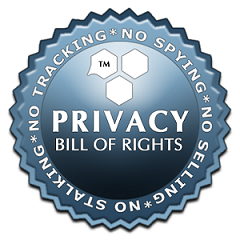
The Interesting Connection Between Passover And The Coronavirus Plague

Passover night this year will be celebrated on April 8th, but the preparations begin way before that. The Bible tells us to clean out all the leaven in our houses to get them utterly yeast-free in time for the feast of Unleavened Bread. Cleaning products are typically on sale at this time, ready for the seasonal demand as Israeli households roll up their sleeves en masse. It’s a spring clean to beat all spring cleans!
Meanwhile, around the globe, we are furiously washing our hands and sanitising surfaces, knowing lives depend on it. We have become acutely aware of how disease can very quickly spread with terrible results.
And the interesting juxtaposition of Coronavirus and Passover doesn’t end there…
Purge and purify
Leaven, Jesus tells us, can quickly spread through the entire batch of dough. He told his disciples to “beware of the leaven of the Pharisees and the Saduccees” (Matthew 16:6), and yeast is often used in the Bible as a metaphor for sin or prideful trust in the flesh. Here are God’s Passover instructions:
“On the first day you shall remove leaven from your houses. For whoever eats leavened bread from the first day until the seventh day, that person shall be cut off from Israel.
On the first day there shall be a holy convocation, and on the seventh day there shall be a holy convocation for you. No manner of work shall be done on them; but that which everyone must eat—that only may be prepared by you. So you shall observe the Feast of Unleavened Bread, for on this same day I will have brought your armies out of the land of Egypt.
Therefore you shall observe this day throughout your generations as an everlasting ordinance. In the first month, on the fourteenth day of the month at evening, you shall eat unleavened bread, until the twenty-first day of the month at evening. For seven days no leaven shall be found in your houses, since whoever eats what is leavened, that same person shall be cut off from the congregation of Israel, whether he is a stranger or a native of the land. You shall eat nothing leavened; in all your dwellings you shall eat unleavened bread.’” (Exodus 12:14-20)
All possible traces of yeast have to be removed. The Jewish association with leaven is pride, and being “puffed up”. We can also see this in Paul’s first letter to the Corinthians, when he warns them about being puffed up and prideful, and continues, in chapter 5:6-8;
“Your glorying is not good. Do you not know that a little leaven leavens the whole lump? Therefore purge out the old leaven, that you may be a new lump, since you truly are unleavened. For indeed Christ, our Passover, was sacrificed for us. Therefore let us keep the feast, not with old leaven, nor with the leaven of malice and wickedness, but with the unleavened bread of sincerity and truth.”
Of course, we can’t get rid of sin on our own – we need the One who has conquered sin to take it as far as the east is from the west. Only His sacrifice will do the trick. But the cleaning process is a good time to reflect on cleaning out our lives. Reflecting on the sin that can accumulate, fester, and even kill if we don’t deal with it.
For something to get clean, something else has to get dirty
If you set about cleaning a dirty floor with a clean cloth, your floor might end up clean, but the cloth gets very dirty. Our Messiah has taken our mess, our guilt, our shame, and our sin upon Himself. In return, we are made pure and righteous in God’s sight. What an exchange.
We need to confess to Him the truth about our sins, and trust Him to do the cleaning. Here is the promise in 1 John 1:9:
“If we confess our sins, He is faithful and just to forgive us our sins and to cleanse us from all unrighteousness.” (1 John 1:9)
The climate of dread and helplessness is helping the world realize that they are not in control – and they never were. It’s as if God is redeeming this awful pandemic by helping people to soberly remember Him, and look up. Someone wrote that it feels as if the universe has sent us to our rooms to think about what we’ve done! Many are allowing God to point out sin in their lives, or to reflect on national sins. It’s a time of contemplation, conviction, and repentance.
One Israeli man even went so far as to return an archeological treasure he had stolen fifteen years ago, under the weight of conviction he felt in this time. He turned to Moshe Manies, who explains:
“When he came across it while cleaning for Passover, together with the apocalyptic feeling the Coronavirus generated, he felt the time was ripe to clear his conscience, and he asked me to help him return it to the Israel Antiquities Authority.”1
The Coronavirus and the process of cleaning speak so clearly about getting rid of sin in our lives. It’s got to go!
“Draw near to God, and He will draw near to you. Cleanse your hands, you sinners, and purify your hearts, you double-minded!” (James 4:8)
The inspection of the doorframes and the coming redemption
The similarities between our current situation and the plagues of Egypt aren’t hard to see. With the locusts swarming across Egypt and ten other countries around the Arabian Gulf causing the worst crisis seen for decades2, terrible earthquakes, ravaging fires, and now this deadly virus, it is all feeling rather biblical.
The Passover story is a story of redemption, as both Jews and Christians will affirm, which points to the coming of the Messiah. Those who love Jesus will say that the parallels between Passover and the crucifixion are staggering in both depth and detail, the design of an all powerful God who orchestrated it from the beginning of time. Many Jewish people who do not accept Jesus will also see the story as the ultimate foreshadow of the coming redemption.
Indeed, there are several hints that the Passover speaks not only to Calvary but also to the climax of time. Revelation 16 describes very similar plagues to those in Exodus: water turning to blood, darkness, giant hailstones and sores, even locusts and frogs. Then of course, there is the final terror of ultimate death.
The last and most deadly of the ten Passover plagues did not affect households with blood on the doorframes. It’s an important aspect of the story to consider: the Destroyer didn’t stop to check on the righteousness of people in the house – only whether there was blood daubed on the doorframe. It was the only determining factor.
Celebrating Passover each year is a wonderful way of keeping the story and its profound meaning alive, generation after generation. It keeps us looking up to God who can protect us from every plague, redeem us from slavery, and even deliver us from death itself. We are protected by the blood of the Messiah – the Lamb of God who takes away the sin of the world.
“Obey these instructions as a lasting ordinance for you and your descendants. When you enter the land that the Lord will give you as He promised, observe this ceremony. And when your children ask you, ‘What does this ceremony mean to you?’ then tell them, ‘It is the Passover sacrifice to the Lord, who passed over the houses of the Israelites in Egypt and spared our homes when He struck down the Egyptians.’”
Then the people bowed down and worshiped. (Exodus 12:24-27)
 By ONE FOR ISRAEL (Messianic Jews In Israel)
By ONE FOR ISRAEL (Messianic Jews In Israel)
1. CBNNews.com, Fearing the ‘Apocalyptic’ Coronavirus, Israeli Man Who Stole Ancient Artifact Returns it 15-Years-Later, Emily Jones, March 16, 2020
2. The Guardian, Locust crisis poses a danger to millions, forecasters warn, Kaamil Ahmed, March 20, 2020
TP

